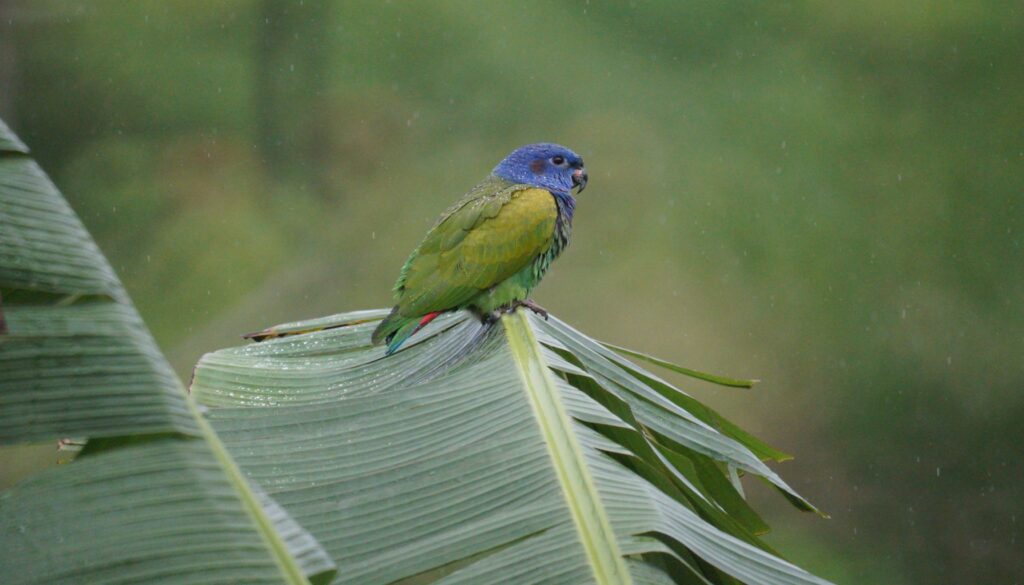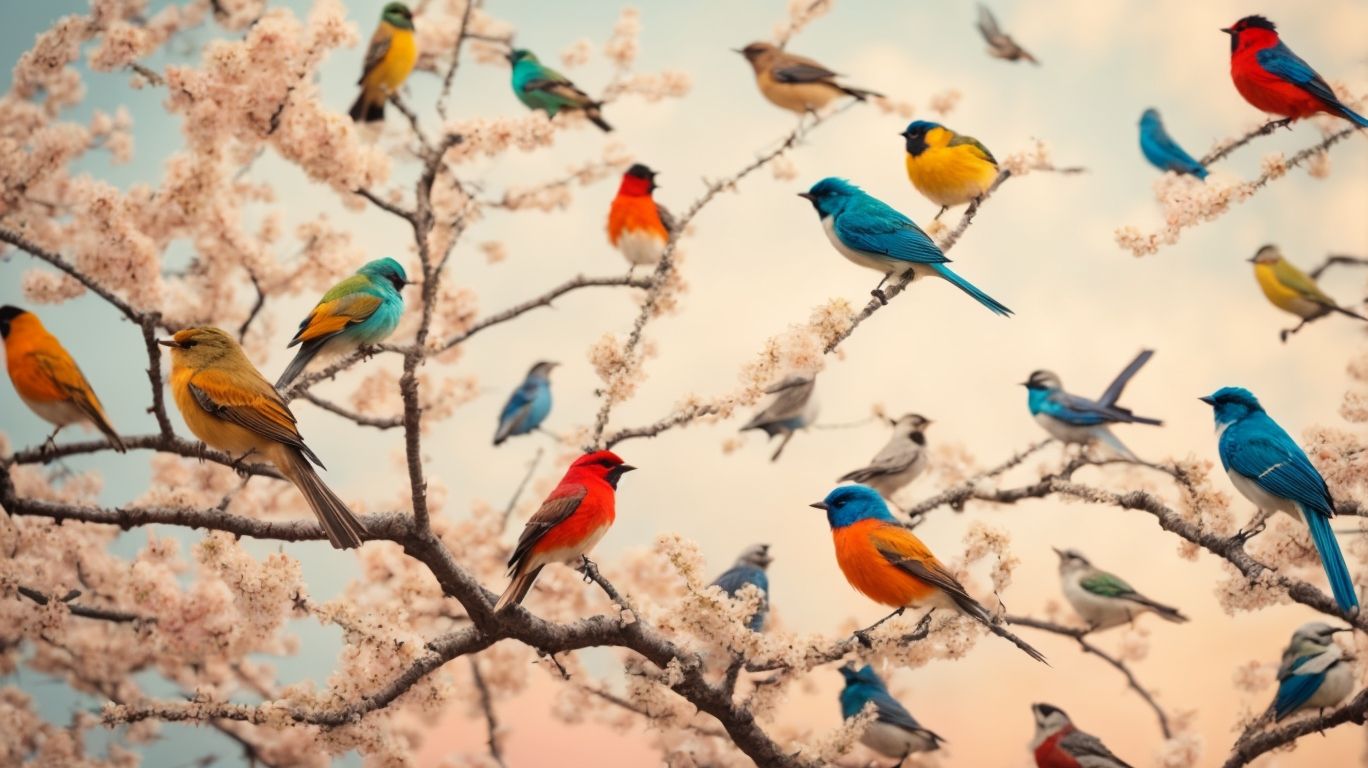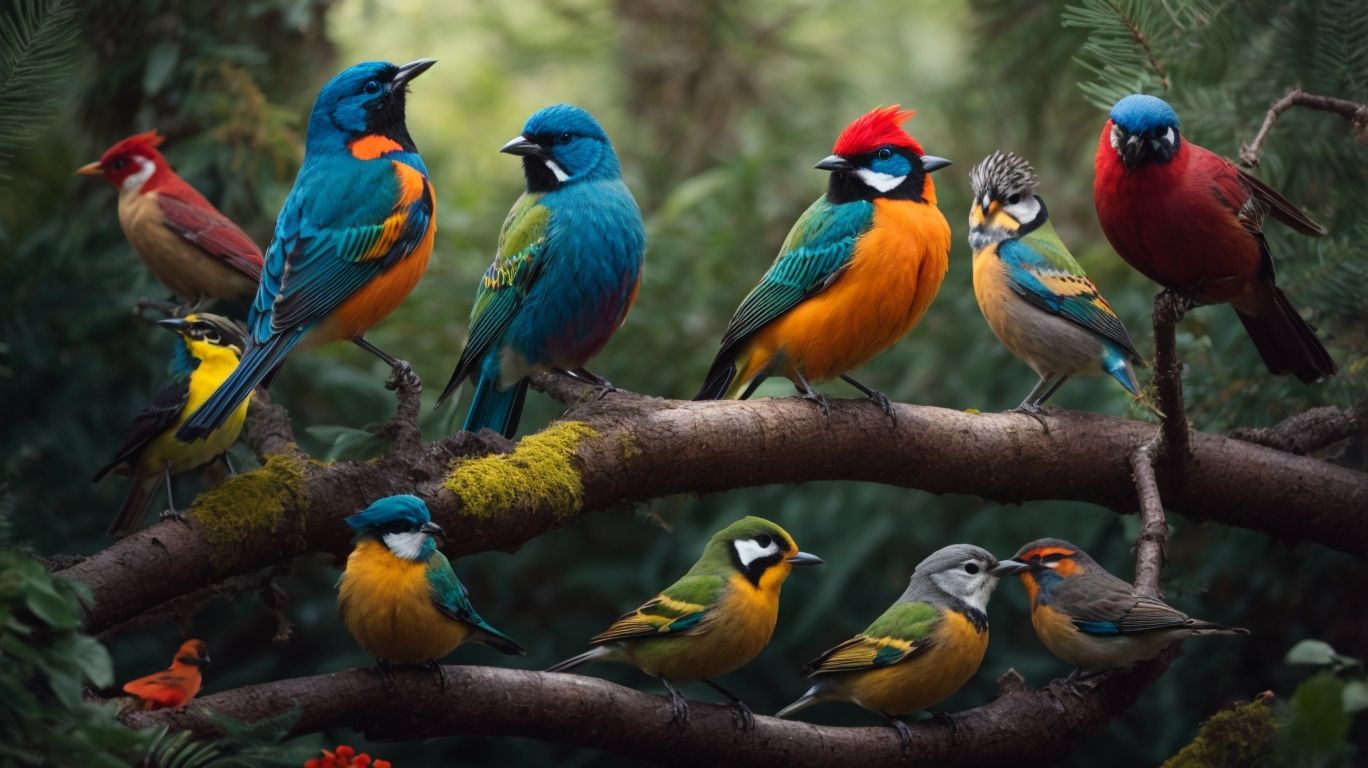
Feathery Delights: The Wonders of Keeping a Pionus Parrot as a Pet
Table of Contents
Understanding the Pionus Parrot: A Unique Pet Experience
Keeping a pionus parrot as a pet is truly a unique experience that sets these birds apart from other pet options. Pionus parrots have a charm and personality that is unlike any other, making them a delightful addition to any family. From their striking colors to their playful nature, pionus parrots capture the hearts of bird enthusiasts around the world.
One of the most fascinating aspects of owning a pionus parrot is their ability to bond deeply with their human companions. These birds are known for their loyalty and affectionate nature, often forming strong connections with their owners. They crave attention and love to be part of the family, eagerly engaging in activities and interacting with their human flock.
Pionus parrots also possess a remarkable intelligence, making them excellent companions for those who enjoy teaching and training. With patience and consistency, these birds can learn a wide range of tricks and behaviors, making every interaction a fun and rewarding experience.
Additionally, pionus parrots are relatively low-maintenance pets, making them a great choice for individuals and families with busy lifestyles. They are generally adaptable and can adjust well to different environments, making them versatile companions for people in various living situations.
Health and Wellness: Taking Care of Pionus Parrot
Taking care of your Pionus parrot’s health and wellness is of utmost importance to ensure they lead a happy and fulfilling life. These birds, like any other pet, require proper care and attention to thrive. Here are some key aspects to consider when it comes to the health and wellness of your beloved Pionus parrot.
First and foremost, a nutritious diet is essential for your parrot’s overall well-being. Pionus parrots have specific dietary requirements that should be met to keep them healthy. A balanced diet for a Pionus parrot consists of high-quality pellets, fresh fruits and vegetables, and occasional treats. It’s important to avoid foods that are toxic to parrots, such as chocolate, avocado, and caffeine.
Regular veterinary check-ups are crucial for detecting and preventing any potential health issues. Finding an avian veterinarian experienced in treating parrots is highly recommended. Regular examinations, vaccinations, and preventative measures, such as parasite control, are necessary to keep your Pionus parrot in optimal health.
Another essential aspect of your Pionus parrot’s health is exercise and mental stimulation. These birds are intelligent and require mental and physical stimulation to stay happy and engaged. Provide a variety of toys, puzzles, and interactive activities to keep them entertained. Encouraging flight and playtime outside of their cage is also beneficial for their overall well-being.
Maintaining a clean and hygienic environment is essential for preventing the spread of diseases and ensuring your parrot’s well-being. Regularly clean and disinfect their cage, food and water dishes, and perches. Additionally, provide fresh, clean water daily, and monitor their droppings for any signs of illness.
Grooming and Hygiene: Keeping Pionus Parrot Clean and Healthy
Proper grooming and hygiene are essential for keeping your pionus parrot clean and healthy. Regular maintenance and care ensure that your feathered friend stays comfortable and free from any potential health issues. Here are some tips to help you maintain your parrot’s hygiene:
Feather care is a crucial aspect of grooming your pionus parrot. These birds have beautiful feathers that require regular attention. Ensure their feathers are clean and free from dirt or debris by providing them with regular baths. You can use a spray bottle or a shallow dish of lukewarm water to mist your parrot, allowing them to preen and clean themselves. Avoid using any harsh soaps or chemicals, as they can be harmful to your parrot’s delicate feathers.
Beak and nail maintenance is also essential for your pionus parrot’s well-being. Trimming their beak and nails helps prevent overgrowth, which can lead to discomfort and difficulty in eating or perching. Consult with an avian veterinarian or an experienced bird groomer for guidance on proper trimming techniques and frequency.
Maintaining a clean cage is vital for your parrot’s health and hygiene. Regularly clean and disinfect the cage to prevent the buildup of bacteria or parasites. Remove any waste or uneaten food promptly and provide fresh bedding regularly.
Additionally, it’s important to provide your parrot with access to clean, fresh water for drinking and bathing. Change their water daily to ensure it stays free from contaminants.
Regular grooming sessions provide an opportunity to check your parrot for any signs of illness. Be vigilant for changes in feather condition, skin abnormalities, or changes in behavior. If you notice anything unusual, consult with an avian veterinarian promptly.
Home Environment: Creating a Happy Habitat for Pionus Parrot
Creating a happy and enriching home environment for your pionus parrot is crucial for their overall well-being and contentment. These intelligent birds thrive in environments that stimulate their minds and provide opportunities for exercise and socialization. Here are some tips for creating a happy habitat for your beloved pionus parrot.
First and foremost, invest in a spacious and appropriately sized cage for your parrot. Pionus parrots are medium-sized birds, so they require enough space to stretch their wings and move around comfortably. Ensure the cage has plenty of perches at varying heights and materials to promote natural behaviors like climbing and chewing.
Decorate the cage with an array of toys and enrichment items to keep your parrot mentally engaged and entertained. Include a variety of toys that offer different textures, sounds, and challenges. Rotating the toys regularly can help prevent boredom and keep your parrot stimulated.
Create a cozy and safe sleeping area within the cage by providing a comfortable sleeping perch or nest box. Pionus parrots appreciate a sense of security, and having a designated sleeping area can help them feel more at ease.
Additionally, consider providing your pionus parrot with a play gym or bird tree outside of their cage. These structures allow them to explore and interact with their environment in a more natural and stimulating way. Offer plenty of perches, swings, and toys on the play gym to encourage exercise and playtime.
It’s also important to consider the placement of the cage within your home. Ensure the cage is located in an area with moderate temperatures, away from direct drafts or sunlight. Avoid placing the cage in the kitchen or near the front door, as these areas can be noisy and stressful for your parrot.
Lastly, provide your pionus parrot with ample out-of-cage time to socialize and interact with you and your family. Allow them to explore their surroundings under supervised conditions and provide opportunities for flight and exercise.
Training and Interaction: Engaging with Pionus Parrot
Engaging with your Pionus parrot is an essential aspect of building a strong and lasting bond with your feathered friend. These intelligent birds thrive on social interaction and enjoy spending time with their human companions. Here are some tips on how to train and interact with your Pionus parrot to foster a happy and fulfilling relationship:
First and foremost, it’s important to establish trust and create a positive environment for your parrot. Spend time sitting near their cage, talking to them in a calm and gentle tone. Gradually introduce your hand, offering treats and rewards to encourage them to approach and interact with you. Be patient and understanding, as building trust may take time.
Once your Pionus parrot feels comfortable around you, you can begin training them using positive reinforcement techniques. These birds respond well to rewards and praise, so use treats, verbal cues, and physical affection to reinforce desired behaviors. Start with simple commands, such as “step up” or “wave,” and gradually increase the complexity of the tricks or behaviors you teach them.
Regular interaction and socialization are key to keeping your Pionus parrot mentally stimulated and happy. Include your parrot in your daily activities, such as watching TV or eating meals together. Offer them opportunities to explore outside of their cage under supervision, allowing them to fly and play in a safe and controlled environment.
Communication is also vital in your interaction with your Pionus parrot. These birds are excellent mimics and can learn to talk or imitate sounds with proper training. Spend time talking to your parrot, using consistent phrases or words. Encourage them to mimic your speech by rewarding their efforts.
Overcoming Challenges: Debunking Myths about the Pionus Parrot
Keeping a pionus parrot as a pet may seem daunting to some, as these beautiful birds often come with their fair share of myths and misconceptions. In this section, we will debunk some common myths surrounding pionus parrots, allowing you to better understand and appreciate these delightful companions:
Myth 1: Pionus parrots are loud and noisy.
While some parrot species are known for their loud calls and vocalizations, pionus parrots are generally quieter in comparison. They have a soft and melodious voice, making them more suitable for apartment living or homes where excessive noise may be a concern. While they can still vocalize and communicate, pionus parrots are not known for being excessively loud.
Myth 2: Pionus parrots are aggressive and difficult to handle.
Contrary to popular belief, pionus parrots are known for their gentle and friendly nature. With proper socialization and training, these birds can be quite affectionate and form strong bonds with their human companions. They are generally not prone to aggression and can adapt well to different household situations.
Myth 3: Pionus parrots are high-maintenance pets.
Pionus parrots are actually relatively low-maintenance pets compared to some other parrot species. They require regular social interaction, mental stimulation, and a balanced diet, but they do not demand constant attention. With proper care and an enriched environment, pionus parrots can thrive and bring joy without requiring excessive time and effort.
Myth 4: Pionus parrots cannot be trained or taught tricks.
Pionus parrots are highly intelligent birds that can be trained to perform a variety of tricks and behaviors. With patience, consistency, and positive reinforcement techniques, you can teach your pionus parrot a range of commands and tricks. These birds are eager to learn and can excel in training sessions, making them a delight to work with.
The Rewards of Having a Pionus Parrot as a Pet
Owning a pionus parrot is truly a rewarding experience that brings joy, companionship, and endless entertainment into your life. These remarkable birds have a unique charm and personality that sets them apart from other pets. With their vibrant colors, affectionate nature, and intelligence, pionus parrots make for fantastic companions.
One of the greatest rewards of having a pionus parrot as a pet is the deep bond you can form with them. These birds are incredibly loyal and affectionate, often forming strong connections with their owners. They crave attention and love to be part of the family, eagerly engaging in activities and interacting with their human flock. The love and companionship they offer are truly priceless.
Another reward of owning a pionus parrot is their intelligence and ability to learn. These birds are highly intelligent and enjoy being mentally stimulated. With patience and consistency, you can teach your pionus parrot a wide range of tricks and behaviors, making every interaction a fun and rewarding experience. The satisfaction of seeing your parrot learn and succeed is incredibly fulfilling.
Additionally, pionus parrots are relatively low-maintenance pets, making them a great choice for individuals and families with busy lifestyles. They are adaptable and can adjust well to different environments, making them versatile companions for people in various living situations. Their gentle and friendly nature also makes them suitable for apartment living.
Related Posts

From Audubon to Wilson: The Stories Behind Bird Names
Have you ever wondered about the stories behind the names…

Speaking Birds’ Language: Navigating the World of Ornithological Nomenclature
Have you ever wondered how birds communicate with one another?…

Birds of a Feather: The Role of Binomial Nomenclature in Birdwatching
Birdwatching is a popular hobby for nature enthusiasts, but what…

No Comments